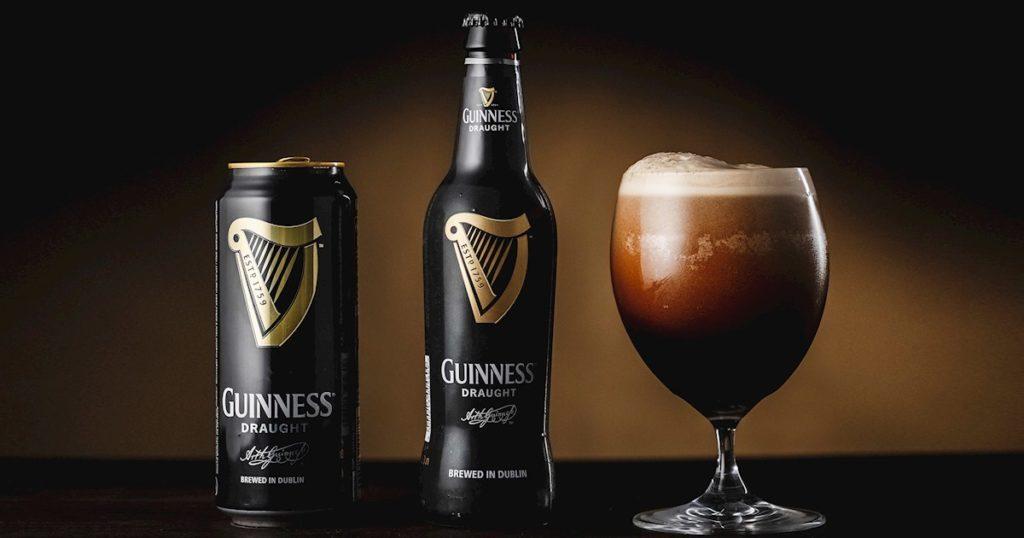Is Guinness Gluten-Free? Unveiling the Truth Behind the Iconic Irish Brew

Introduction:
In the world of beer, Guinness holds a special place as an iconic symbol of Irish heritage and craftsmanship. However, for those with gluten sensitivities or celiac disease, the question arises: Is Guinness gluten-free? In this blog post, we delve into the composition and brewing process of Guinness to determine whether it is a safe choice for individuals adhering to a gluten-free lifestyle.
Understanding Gluten and Celiac Disease:
Before we delve into the specifics of Guinness, let’s first understand what gluten is and why it can be problematic for certain individuals. Gluten is a mixture of proteins found in wheat, barley, rye, and triticale. For people with celiac disease, an autoimmune disorder, consuming gluten triggers an immune response that damages the lining of the small intestine, leading to various digestive issues and long-term health complications.
Guinness: A Brief Overview:
Guinness is a dark stout beer with a distinctive roasted flavor that has captured the hearts of beer enthusiasts worldwide. Brewed in Dublin, Ireland, since 1759, it has become synonymous with Irish culture and tradition. While it has a rich history, the ingredients used and the brewing process employed by Guinness can shed light on its gluten content.
The Ingredients:
Traditionally, Guinness is made using water, barley, hops, and yeast. The presence of barley raises concerns for individuals with gluten sensitivities since barley contains gluten. However, the brewing process influences the final gluten content in the beer.
Brewing Process and Gluten Removal:
The brewing process involves malting barley, a step where the barley grains are soaked, germinated, and dried. During malting, enzymes break down proteins, including gluten, into smaller components. In most beers, this gluten reduction is not sufficient for individuals with celiac disease. However, Guinness takes additional steps to ensure a lower gluten content.
Guinness employs a process known as “isinglass fining” during filtration. Isinglass, derived from fish bladders, is used to remove impurities and clarify the beer. This filtration process significantly reduces the gluten content in Guinness, but it does not render it entirely gluten-free.
Gluten Content and Regulations:
According to the U.S. Food and Drug Administration (FDA), a product can be labeled as “gluten-free” if it contains less than 20 parts per million (ppm) of gluten. However, the gluten content in Guinness remains slightly above this threshold, at around 20-30 ppm, according to the company’s own testing. Therefore, it is crucial for those with celiac disease or severe gluten sensitivities to exercise caution.
Alternative Options for Gluten-Free Beer:
If you must adhere strictly to a gluten-free diet, there are numerous gluten-free beer alternatives available in the market today. Several breweries produce gluten-free beers using alternative grains like sorghum, millet, rice, or corn. These options offer a variety of flavors and styles to cater to different preferences.
Conclusion:
In conclusion, while Guinness takes steps to reduce the gluten content in their beer through the brewing process and filtration techniques, it cannot be considered completely gluten-free. For individuals with celiac disease or severe gluten sensitivities, it is recommended to choose beers that are explicitly labeled as “gluten-free” to ensure their safety and well-being.
If you enjoy the unique taste and experience of Guinness but need to adhere to a gluten-free diet, exploring the wide range of gluten-free beer options can provide you with suitable alternatives that meet your dietary requirements.
Remember, it’s essential to consult with a healthcare professional or a registered dietitian to ensure your dietary choices align with your specific needs. Cheers to making informed decisions and finding the perfect brew that suits your palate and lifestyle!